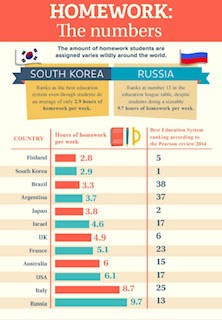Opinion: Emphasis on Homework Needs to Shift From Quantity to Quality
A Stanford University study found that 56 per cent of students consider homework to be a primary source of stress.
April 8, 2021
Ten pages of the textbook assignment due tomorrow! Quiz Tuesday! Presentation on Friday!
For high school students, homework is virtually inescapable. But are nightly assignments really as essential as school administrators and teachers make them out to be?
An old ‘rule’ says that students should receive an additional ten minutes of daily homework for each grade into which they rise. That is, students in first grade will receive ten minutes of daily homework, students in second grade will have 20 minutes of work, and so forth. This doesn’t sound like much. But by sixth grade, the rate has already increased to an hour of homework each night. And According to the National Center for Education Statistics, high school students spend an average of 6.8 hours completing homework each week. This number, when combined with an eight-hour school day, means hours upon hours of schoolwork for students.
In addition to completing homework assignments, students must juggle jobs, extracurricular activities, household responsibilities, and personal wellness — which includes maintaining a healthy diet, exercising, and receiving an appropriate amount of sleep. Copious amounts of homework, however, often force students to push these things aside. Indeed, homework can negatively impact students’ mental and physical health. A Stanford University study found that 56 per cent of students consider homework to be a primary source of stress; too much homework can result in lack of sleep, headaches, exhaustion, and weight loss.
Homework also reduces the time students are able to spend with family and friends, and can subsequently lead to depression and social anxiety. Research has shown that typical schoolchildren during the 1980’s reported more anxiety than that reported by child psychiatric patients during the 1950’s. This finding likely correlates to an overload of homework and school-induced stress.
Homework can hinder creativity and prevent students from developing hobbies and learning new things about themselves. The researchers at Stanford University also found that students who dedicated too much time to homework failed to meet their developmental needs and cultivate other critical life skills. These students were more likely to skip activities, stop seeing family and friends, and forgo hobbies.
Of course, homework is important and should not be entirely eliminated. Rather, the emphasis on homework needs to shift from quantity to quality. In fact, excessive amounts of homework — besides taking a toll on students’ mental and physical health — fail to improve grades. In an interview with Monitor on Psychology, Pope — a coauthor of the Stanford study — argued that students can learn challenging skills even when less homework is assigned. Pope discussed an AP Biology teacher’s experiment with significantly reducing the length of homework assignments. As the teacher cut homework by a third — and then in half — students’ test scores remained the same.
Other countries approach homework differently. In contrast to the 6.1 hours of weekly homework that characterizes the American education system, students in Finland — which boasts the fifth best education system in the world — receive an average of 2.8 hours of homework each week.

Any change to the education system will be long-term. Still, there are ways to alleviate stress in the short-term. Setting aside just 10 minutes for daily exercise is proven to improve mood, attention, focus, and mental health — all of which help to reduce the time spent on homework assignments. Meditating is another proven stress-reducer. The age-old technique calms the mind and improves focus. A simple stroll around the neighborhood also provides several health benefits, such as improved mood. And though it is often difficult to do so, removing technological distractions — namely, one’s cell phone — from one’s work area can help increase efficiency in completing assignments.
In time, the nature of homework will change. For now, students and teachers must ‘agree’ upon a system of assignments that facilitates learning, but addresses the physical, mental, social, and emotional needs of students. One that puts quality before quantity.













Joe Franchino • Apr 9, 2021 at 8:03 am
Wow wee, you have so much talent in your writings. Truly incredible how you lay out all the facts chronologically. Super super job, proud of you!!!!!!!!